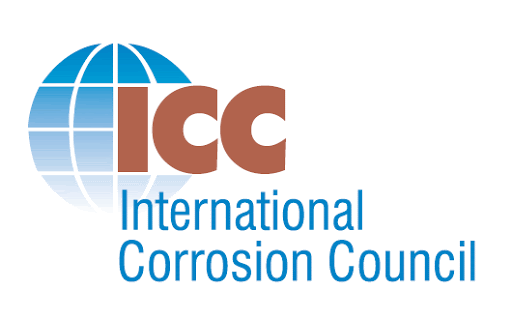History of the International Corrosion Council (ICC) and the International Corrosion Congress
The first attempt to promote a forum for the exchange of corrosion information occurred in Great Britain in the early 1960’s. Under the auspices of the International Union for Pure and Applied Chemistry and the Minister of the British Council for Science, Sir Henry Melville, a plan was conceived to hold an International Congress on Metallic Corrosion. Lord Melville, with the assistance of U.R. Evans, T.P. Hoar and other British scientists, solicited participation from corrosion specialists throughout the world which resulted in the first International Congress on Metallic Corrosion (ICMC) being held in April 1961 in London. The meeting proved to be a great success. Aca estamos editando
The second International Congress on Metallic Corrosion was organised in connection with the 1963 annual NACE conference and took place in March in New York City. Dr Greco served as president with F. La Que and H. Uhlig as vice-presidents. At this second conference a “draft” charter and by-laws for a permanent council for the ICMC were presented to key people from the participating countries. Reactions were favourable so a meeting with all of the world corrosion scientists was arranged.
The draft charter and by-laws were adopted with some minor changes. It was decided that a congress would be held every three years and that each member country would have two voting representatives on the permanent council. Dr Greco was elected the first president, and Dr Pourbaix the first vice-president. T.J. Hull of NACE was appointed secretary of the council. It was also agreed that the third congress would be held in the USSR in 1966.
Dr Greco served as president of the permanent council until the fourth congress held in Amsterdam in 1969, at which time Dr Pourbaix assumed the presidency of the permanent council, and held that position for the fifth congress in Tokyo and the sixth in Sidney.
At the Sidney conference, Bill Hewes of Canada, Dr Stewart Leach of Great Britain, and T.J. Hull of the United States completed a much needed revision of the by-laws. Dr. H.H. Uhlig of the United States was elected president of the permanent council and served as such through the seventh congress held in 1978 in Rio de Janeiro.
Distinguished scientists from around the world have served as president of the permanent council and the success of each ICC congress has been assured by the unselfish work of the conference committee chairmen.
| Year | City | Country | ICC Chairman | Chairman of the Organising Committee | |
| 1 | 1961 | London | UK | – | – |
| 2 | 1963 | New York | USA | – | Dr. Greco |
| 3 | 1966 | Moscow | Russia | – | Dr. Kolotrykin |
| 4 | 1969 | Amsterdam | Netherlands | Dr. Greco | – |
| 5 | 1972 | Tokyo | Japan | Dr. Pourbaix (Marcel) | Dr. Okamoto |
| 6 | 1975 | Sydney | Australia | Dr. Pourbaix (Marcel) | Dr. Keys |
| 7 | 1978 | Rio de Janeiro | Brazil | Dr. Uhlig | Dr. Dutra |
| 8 | 1981 | Mainz | Germany | Dr. Leach | Dr. Engell |
| 9 | 1984 | Toronto | Canada | Dr. Lacombre | Dr. Godard |
| 10 | 1987 | Madras | India | Dr. Trabanelli | Dr. Vasu |
| 11 | 1990 | Florence | Italy | Dr. Kruger | Dr. Mazza |
| 12 | 1993 | Houston | USA | Dr. Mattsson | Dr. Payer |
| 13 | 1996 | Melbourne | Australia | Dr. Wood | Dr. Whitby |
| 14 | 1999 | Cape Town | South Africa | Dr. Graham | Dr. White |
| 15 | 2002 | Granada | Spain | Dr. Landolt | Dr. Morcillo |
| 16 | 2005 | Beijing | China | Dr. de Wit | Dr. Ke |
| 17 | 2008 | Las Vegas | USA | Dr. Pourbaix (Antoine) | Dr. Sridhar and Dr. Latanision |
| 18 | 2011 | Perth | Australia | Dr. Tsuru | Dr. Farinha |
| 19 | 2014 | Jeju | South Korea | Dr. Morcillo | Dr. Kim |
| 20 | 2017 | Prague | Czech Republic | Dr. Arroyave | Dr. Prošek |
| 21 | 2020 | São Paulo | Brazil | Dr. Schmitt | Dr. Panossian |
info@icc-corrosion.org
Hosted and Powered by
NetSurf - P. Iva/CF: 06953990014
